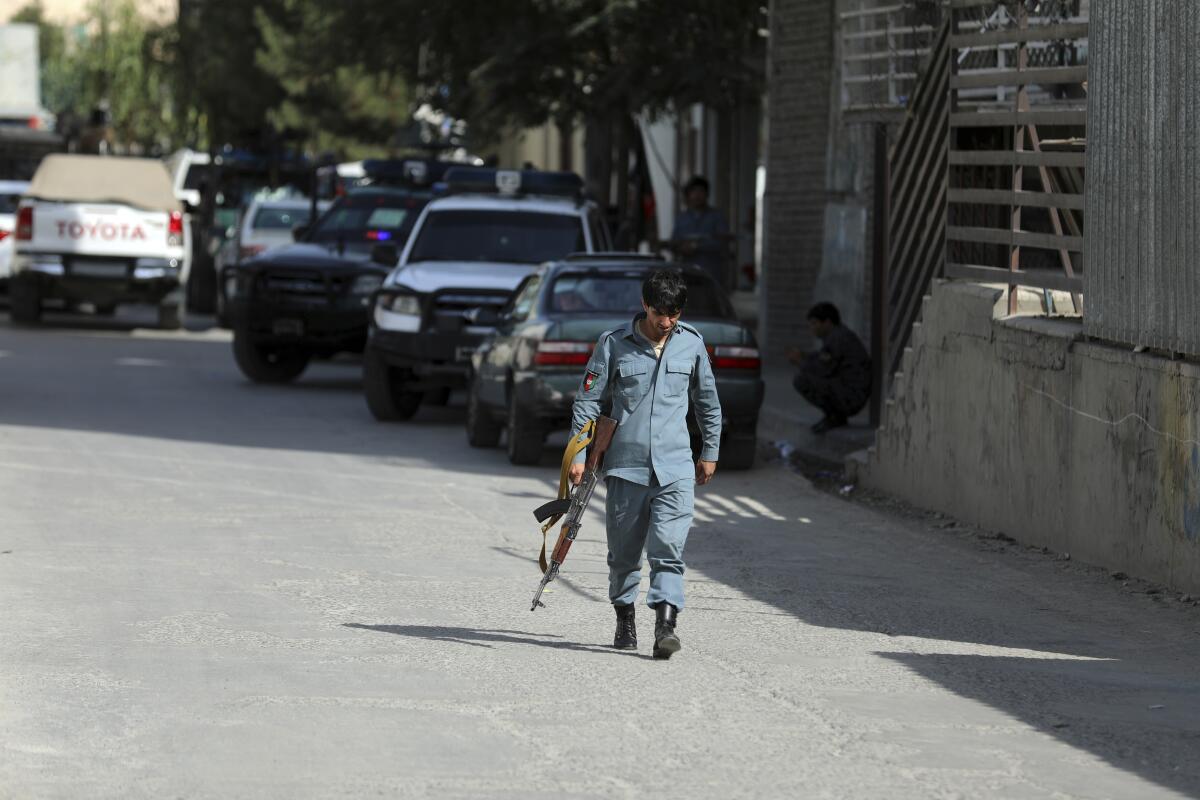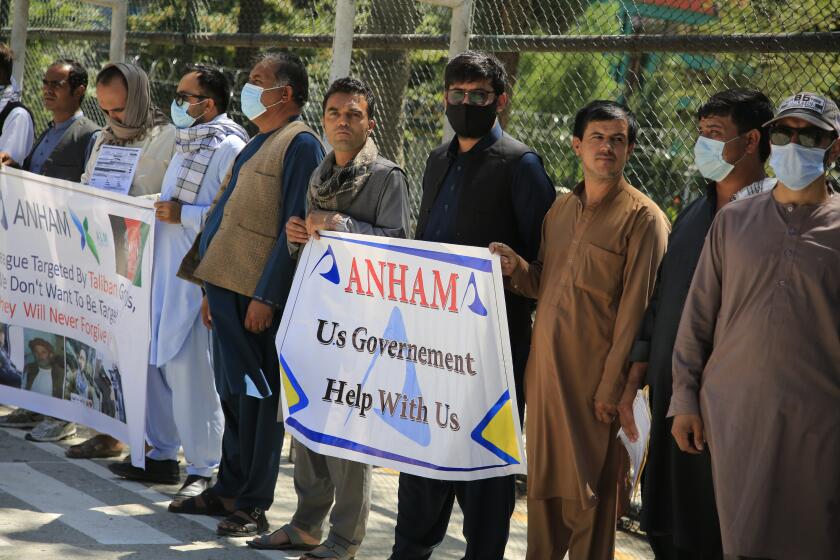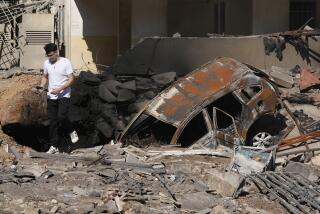Taliban kills Afghan media chief in Kabul, takes over provincial capital

- Share via
KABUL, Afghanistan — The Taliban ambushed and killed the director of Afghanistan’s government media center Friday in Kabul, the capital, the latest killing of a government official just days after an assassination attempt on the country’s acting defense minister.
The slaying comes amid Taliban advances as U.S. and NATO forces complete their final pullout by the end of the month. The Taliban has been waging fierce battles for months across Afghanistan, laying siege to provincial capitals in the south and west of the country after capturing district after district and even seizing several key border crossings.
Also Friday, in southern Nimruz province, the city of Zaranj appeared to be the first provincial capital to fall to the Taliban, though the government claimed there was still fierce fighting around key infrastructure in the city. The Taliban posted images on social media showing insurgents inside the local airport and posing for photographs at the entrance to the city.
Nimruz is sparsely populated in a mostly desert region, and Zaranj has about 50,000 residents. Its fall to the Taliban, if confirmed, is a mostly symbolic victory for the insurgents.
Meanwhile, Taliban spokesman Zabihullah Mujahid told the Associated Press that the insurgents killed Dawa Khan Menapal, the chief of the Afghan government’s press operations for local and foreign media. He had previously been a deputy spokesman for Afghan President Ashraf Ghani.
The assassination took place during weekly Friday prayers, according to the Interior Ministry’s deputy spokesman, Said Hamid Rushan. After the shooting, Afghan forces fanned out across the neighborhood of Kabul where Menapal was gunned down while riding in his car.
As the U.S. hastens to exit Afghanistan by Aug. 31, women fear a potential return to power by the Taliban and its harsh view of their role in society.
Mujahid, the Taliban spokesman, later released a statement claiming responsibility and said that Menapal “was killed in a special attack” by the mujahedin, or holy warriors.
The Taliban often targets government officials and those it perceives as working for the government or foreign forces, though several recent attacks have been claimed by the Islamic State group. The government most often holds the Taliban responsible.
Earlier this week, a Taliban bombing attack targeted Afghanistan’s acting defense minister, Bismillah Khan Mohammadi. The attack in a heavily guarded upscale Kabul neighborhood late Tuesday killed at least eight people and wounded 20. The minister was unharmed.
The bombing was followed by a gun battle that also killed four Taliban fighters. The militants said the attack was to avenge Taliban fighters killed during government offensives in rural provinces.
The Biden administration will allow refugee visas for more Afghans at risk for helping the U.S. as Taliban violence grows and American troops withdraw.
In the south, Afghan and U.S. aircraft pounded Taliban positions in Helmand province Friday, as the insurgents closed a major border crossing with neighboring Pakistan.
Residents in Helmand’s besieged provincial capital, Lashkar Gah, said airstrikes destroyed a market in the center of the city — an area controlled by the Taliban. Afghan officials say the Taliban now controls nine out of the 10 districts of the city.
Afghanistan’s elite commandos have deployed to Lashkar Gah, backed up by airstrikes by the Afghan and U.S. air forces.
The Taliban began sweeping across Afghanistan at an unexpected speed after the U.S. and NATO began their final pullout in late April.
Breaking News
Get breaking news, investigations, analysis and more signature journalism from the Los Angeles Times in your inbox.
You may occasionally receive promotional content from the Los Angeles Times.
The bitter fighting has displaced hundreds of thousands of Afghans, now living in miserable conditions in improvised shelters and makeshift camps in the southern, desert-like environment, with brutally hot days and cold nights. Inside the cities where fighting is underway, thousands are trapped and unable to move from their homes.
In the southern city of Kandahar, the capital of the province of the same name, hundreds are sheltering in makeshift camps, wondering where they will get food for their children. In Lashkar Gah, the shuttered office of Action Against Hunger, a global humanitarian organization, was hit in an airstrike Thursday, the group said in a statement. Fighting had forced the organization to close its office last week.
More than half of Afghanistan’s 421 districts and district centers are now in Taliban hands. While many of the districts are in remote regions, some are deeply strategic, giving the Taliban control of lucrative border crossings with Iran, Tajikistan and Pakistan.
In southeastern Afghanistan, the Taliban last month took control of the town of Spin Boldak on the border with Pakistan, one of Afghanistan’s busiest border crossings. Thousands of Afghans and Pakistanis cross daily, and a steady stream of trucks passes through, bringing goods to land-locked Afghanistan from the Arabian Sea port city of Karachi in Pakistan.
The Taliban closed the crossing Friday over a visa dispute, claiming that Pakistan was abiding by Kabul government requirements for Afghans traveling into Pakistan to have a passport and a Pakistan visa. Previously, travel documents were rarely demanded and Afghans with local ID cards could cross into Pakistan.
More to Read
Sign up for Essential California
The most important California stories and recommendations in your inbox every morning.
You may occasionally receive promotional content from the Los Angeles Times.












